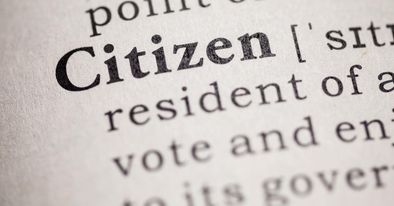
The Case for Civic Forums: Thinking Differently About Polarization
Those who frame the issues hold the power. Social, political and economic challenges are typically framed in ways that most citizens don’t get a chance to influence. Citizens, when they do come to the table, come to the “party” late. They arrive after the food has been processed by commercial, political and business interests, and they can “lump or like” what is served up.
This is a key reason why there’s so much polarisation right now. Of course you’ll get polarisation if you only offer people “either-or“ choices. But to my mind the root issue of much of our current social and political malaise is not polarisation per se, it’s the lack of agency to shape the issues that affect our lives, in the first place. Polarisation is a symptom – not the cause.
It’s worth remembering that when we offer people two competing choices, we offer them a dilemma which forces them to define their relationship to an in-group and an out-group. In practice real choice in such instances requires at least a third additional option. Such nuance can only emerge through civil dialogue.
Much air time is being given over to addressing polarization, extremism and demagoguery. Understandably so, given recent events, especially in the US. But hardly any attention is given over to the creation of civic forums with authority to frame the issues before they arrive on our civic plates. Indigestion is optional and civic forums have the potential to create spaces for people to chew over issues. And to bring collective wisdom and judgement to how best they might be framed.
Perhaps because I’m Irish; more probably because it’s so rare in my country or any other, to see such an impactful civic process; I commend as exemplary the example of the Citizen Assembly on the Eighth Amendment of The Irish Constitution. It safely held the often traumatised and deeply ambivalent psyche of a nation, in an often healing dialogue, on the issue of abortion. This Guardian article captures nicely why such a process matters, and what it may have to offer our nearest neighbours on either side of the Irish coastline: ‘Transparency and fairness’: Irish readers on why the Citizens’ Assembly worked here.
Over the next three weeks, I will explore the potential of such civic forums-particularly at localised levels-to rekindle and re-tether democracy to its grassroots origins. I hope you’ll join me and share your views.
Cormac Russell, Nurture Development

James Moore
Very excited for the next articles, I’ve been struck by the many opportunities there are to discover, nuture and create peaceful and honest civic forums between family, friends and neighbours
Paul Hernday
I’m looking forward to further posts on this topic. I too feel the need for more citizen input to policy-making. And we need dialogue and deep listening and questioning; otherwise it’s just Left/Right gridlock.
Along these lines I’ve imagined a sort of ‘pen pal’ relationship between two people who disagree but are interested in better understanding the ‘other side’ to find common ground. It’s reported that Left and Right both perceive the other side as much more radical and monoclonal than they really are, and those stereotypes are broken down when people meet and talk face to face. This may require some facilitation, or at least some help in matching up interested parties.
With respect to having a voice in policy, my main experience so far has been in pitching ideas and suggestions into the last cycle of political campaigns.
Now it feels obsolete to me to just wait for the new administration to do their thing without huge citizen input. I write to the president and to my legislators, but long for a more methodical way for people collaborate to identify, refine, and advocate en masse for practical solutions.
How do we create environments for this, in which there’s enough human contact that we can overcome the extreme stereotypes?
Cormac Russell
Dear Paul, thank you for your Thoughtful response. I love your pen-pal suggestion. Moreover more place-based responses may be helpful in creating opportunities to work across ideological divided in order to do things together for our shared spaces and places. BW Cormac